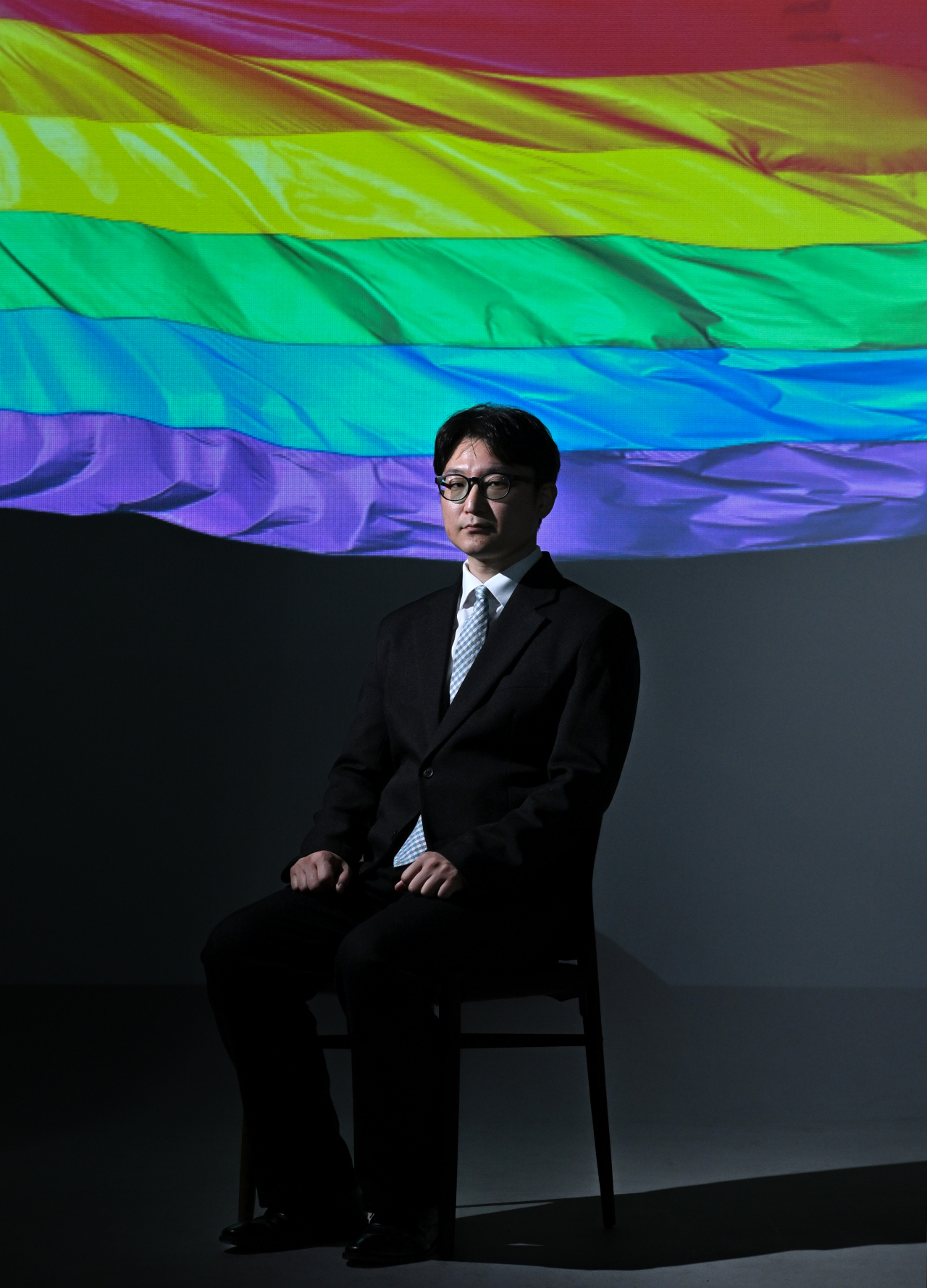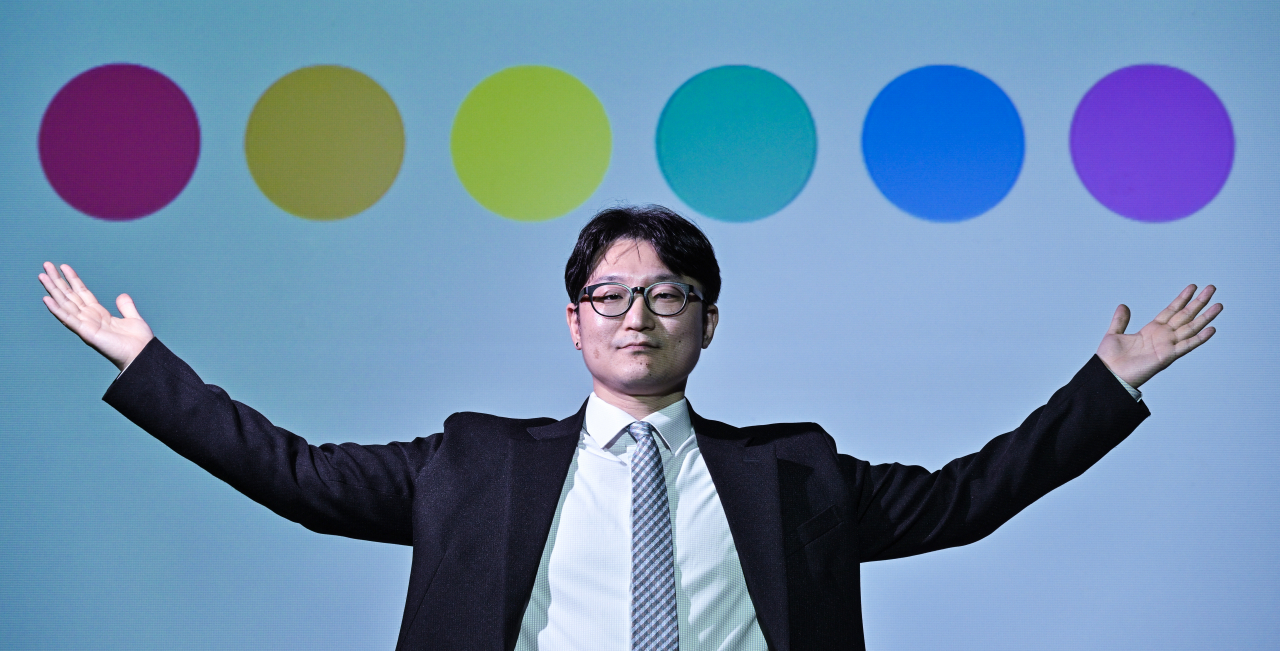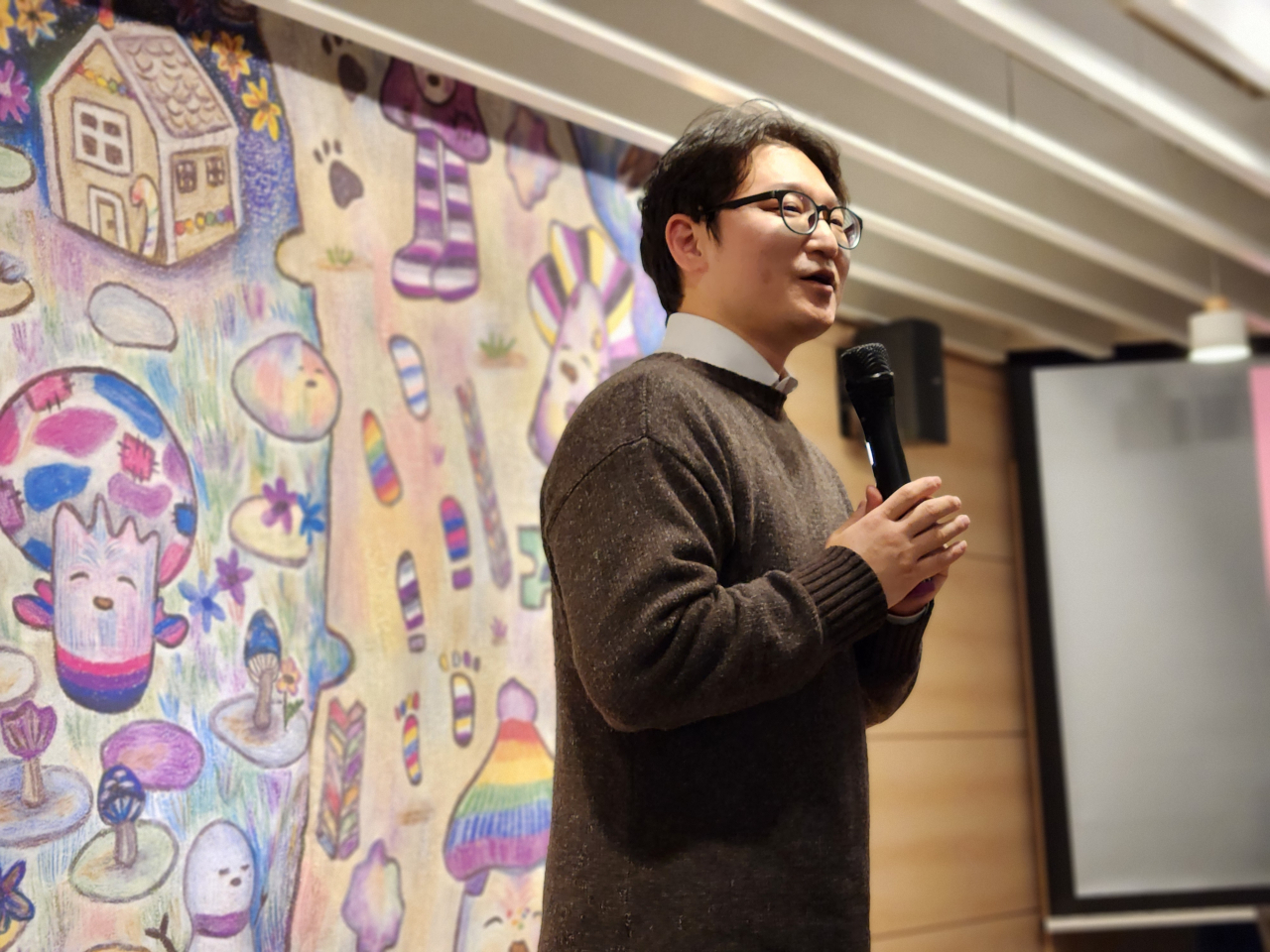 |
Lee Dong-hwan, once a Methodist pastor poses for a photo ahead of an interview with The Korea Herald at Herald Square in Seoul on March 19. (Im Se-june/The Korea Herald) |
For former Methodist pastor Lee Dong-hwan, an encounter with one of his congregants in early 2015 changed his life.
About a year into his pastoral work at a church in Suwon, a churchgoer came out to Lee, prompting him to learn everything he could about homosexuality. Lee admitted that he did not know enough about it to adequately comfort and advise the congregant.
“The thing is, I too thought homosexuality was a crime back then. I said I’d get back to the person with an answer and started digging up medical and psychology papers on the topic. And of course, I looked into what the Bible says,” Lee said in a recent interview with The Korea Herald.
‘Homosexuality not a crime’
“It’s not a crime,” Lee said of the conclusion he reached after his research, and it is something he has since come to embrace. “Hence, blessing same-sex couples is never a matter of right or wrong,” he said.
Lee lived up to his word and, at the Queer Festival in Incheon in August 2019 and again at the same events, separately in Incheon and Seoul in 2020, he blessed same-sex couples. But his actions came at a cost and he was recently excommunicated by the Church.
 |
Lee Dong-hwan, once a Methodist pastor poses for a photo ahead of an interview with The Korea Herald at Herald Square in Seoul on March 19. (Im Se-jun/The Korea Herald) |
The March 4 decision by the Korean Methodist Church, which oversees Lee’s church, followed an earlier decision to suspend Lee over the 2019 blessing, citing church law that bans endorsing homosexuality. Pushing ahead with a similar blessing in 2020 and launching a queer advocacy group, QnA, in 2022 led to harsher penalties for Lee.
The 43-year-old pastor asked the Seoul Central District Court to determine whether the homosexuality clause the KMC approved in 2015 is not in conflict with the freedom guaranteed by the Constitution to heed inner voices, express thoughts and pursue religion. Lee’s attorneys also cite procedural lapses in seeking to nullify the KMC ruling.
It will likely take years to see a Supreme Court ruling, which both sides are expected to push for. It’s not even clear whether the KMC will reverse its decisions and allow Lee back into the denomination. The unanimous decision to excommunicate Lee, however, is a telltale sign that it’s unlikely.
Checks on extremism
Still, Lee is adamant.
“If we let this stand as a precedent, the church could and would mobilize whatever it has under its influence to silence what it sees as dissent,” Lee said of the unrelenting efforts he is prepared to undertake to prevent spillover effects.
“What happens in church doesn’t stay in church. It spills over,” Lee added. “Korean churches are waging a campaign against approving an anti-discrimination law, blocking measures to broaden the rights of students and calling out libraries housing books on gender equality.”
Such moves, Lee noted, are counterproductive for society as well, laying out why he believes that court intervention is needed. “My trial could shed a new light on that front, I believe,” Lee added.
Lee said the increasingly inhospitable climate encouraging intolerance has to do with the way Korean churches are formed.
 |
Lee Dong-hwan, a former Methodist pastor at his church in Suwon (Lee Dong-hwan) |
“Simply put, churchgoers have this mindset: You’re either with us behind Jesus or against us with Satan. And (to them), homosexuality is everything Satan represents. That’s the bottom line,” Lee said.
Complex rules and procedures make it hard for churches to revamp their leadership, who are often older individuals, complicating the already challenging task and requiring sacrifices, according to Lee. The fact that Korean society as a whole is reluctant to engage in public debate, rendering any shift in perception elusive, adds to the woes, he noted.
“Churches appear united in demonizing homosexuality,” Lee said, warning of growing incidences of hate speech. He explained he has seen fewer leaps of faith and more leaps in logic taking place in public discourse, especially when it comes to debates on same-sex couples. Buzzwords like “anal sex,” “AIDS” and the “erosion of the moral compass and national integrity” are textbook examples, Lee said.
Nonetheless, Lee refused to give into despair.
“Perceptions are shifting, little by little,” Lee said. “When the younger generations leading the change take over, they will become the kind of current that is hard to beat back.”
Lee said he expects to see such a shift in about 30 years. He maintains he never feels regretful or sorry for himself over the turmoil in which he finds himself these days.
“Another Lee will follow, I’m sure of that,” Lee said. “Of all the Lees, I’m just a guy who happened to be at the front. The one who opened the gates first, if we can leave it at that.”







